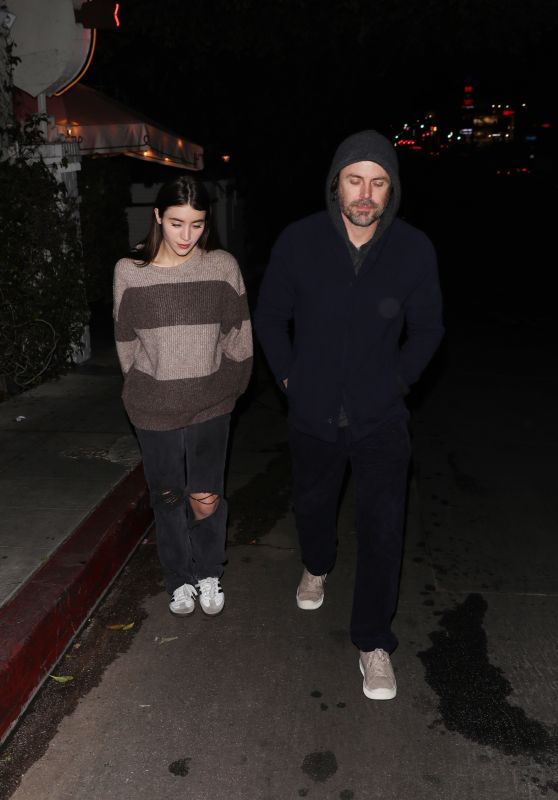Norwegian director Benjamin Ree makes compelling (if occasionally airless) documentaries about men who discovered unusual ways of expressing themselves, and by doing so managed to defy the assumptions of a modern world that’s quicker than ever to judge people on a single detail. First came “Magnus,” the portrait of an eccentric chess prodigy who learned to channel his charisma through the genius of his play. That was followed by “The Painter and the Thief,” which tells the story of a lifelong criminal who came to see himself in a new light after stealing a piece of art from Oslo’s Galleri Nobel.
Now arrives “The Remarkable Life of Ibelin,” a clever and heartfelt tribute to someone Ree knew as a child — before Mats Steen’s all too brief existence was defined by the muscular dystrophy syndrome that seemingly deprived him of the chance to meet friends, fall in love, and otherwise make a lasting impression on the people outside of his immediate family. When the 25-year-old Steen died in 2014, however, nobody was more surprised than his parents to discover the full extent of the legacy their son had managed to leave behind. That’s why he bequeathed them the password to his blog: So that his parents could post news of his death, and see from the onslaught of loving replies that Mats’ life was so much bigger than they had ever dared to imagine. It was so much bigger than his body was ever thought to allow.


Robert and Trude Steen were aware that their son had spent more than 20,000 hours playing “World of Warcraft” during the last and most incapacitated years of his life (they had always encouraged him to game, if only because they wanted his days to be filled with whatever joy he could find), but they had no idea about the depth of the relationships that Mats was forming in the digital realm of Azeroth, nor had it ever occurred to them how those relationships might spill over into our analog reality. It was only after Mats died that Robert and Trude came to appreciate what their son had written in his blog: The computer is “not a screen, it’s a gateway to whatever your heart desires.”
And that gateway operates in both directions. What the Steens desired after Mats’ death was a deeper understanding of who their son was beneath his disease, and what they found on his hard drive were 42,000 pages of in-game text that effectively told the story of how Mats had spent the last 10 years of his life.
Named after the beloved private investigator who Mats embodied whenever he stepped foot in Azeroth, and relying on pixelated animation that accurately emulates the graphics of that game world (albeit with far more expressive character models), “The Remarkable Life of Ibelin” re-creates the key moments of that story with an emotional urgency that allows them to feel like episodes from a memoir rather than snippets from old Twitch streams. Sound-alike actors have been hired to bring the dialogue to life, but every line has been lifted verbatim from the data of Mats’ text chats.
We see Ibelin — a buoyantly hulking blond who resembles a shredded cross between Boromir and Gaston, even as he exudes a kindness foreign to both of those characters — run laps around the forests just because he can, drink fake beer with one of his dwarf friends, and become server-famous for the empathy he showed to the other people in his guild. We even see him fall in love with a cheeky rogue named Rumour, and meaningfully interact with the girl who controls her. This was a life, the film insists; one that was in many ways more real to Mats than the one he lived at home, where up to 11 full-time assistants were required to assist him with basic functions and monitor his health (which might explain how Ree was able to come by so much footage of Mats playing “World of Warcraft” in his room).
It’s a beautiful argument, and a convincing one as well. Ree has dedicated his career to illustrating the infinitely polyphonic nature of human communication, and it was only a matter of time before that motif led him into the digital realm. Along the same lines, it makes sense that it led Ree to this digital realm, as “The World of Warcraft” — special for its emphasis on community and the depth of its user base — is as emotionally legible as any online hub that exists. While hundreds of raids and whatnot were surely left on the cutting room floor, but “The Remarkable Life of Ibelin” eschews any evident “gameness” in favor of watching its characters stand around and emote, a decision that rewards the various live-action detours that explore the real-world impact of Mats’ virtual friendship.
A subplot about a character named Reina typifies the film’s interests: Upon learning that she is struggling to engage with her autistic son, Mikkel, Ibelin suggests that they connect through gaming. Unburdened from the hypersensitivities that can isolate him in “the real world,” Mikkel is comfortable to hug his mom for the first time (or to have his avatar hug his mom’s avatar at least), and to express his love for her in a way that she knows how to receive it. When Mats’ condition worsens and Ibelin becomes standoffish with his guild and absent from Azeroth for long periods of time, it’s Reina who suspects that it might have something to do with his body.
 “The Remarkable Life of Ibelin”
“The Remarkable Life of Ibelin”It’s touching stuff, and the home videos that Ree uses to contextualize the long animated segments — most of it stuffed into the beginning and end of the film is every bit as heartbreakingly bittersweet as you might expect of footage that was shot by people who assumed it would be the only archive of their child’s memory. There isn’t a parent on this Earth who won’t wince in sympathy at some of these tapes, even the happiest of which forced Robert and Trude to confront the evidence of their son’s deterioration, and there isn’t a doubt in our minds that Mats meant the world to them.
As was the case with “The Painter and the Thief,” however, “The Remarkable Life of Ibelin” finds Ree broadly exulting in the circumstances of his story — remarkable as they are — at the expense of probing them for deeper truths. The film is determined to prove that people can meaningfully interact with the world in any number of ways, now more than ever, and it accomplishes that goal with real clarity and rare emotional force (the last shot is the kind of gut-punch that hurts so good).
But in doing so, Ree tends to see Mats as an avatar of his own; as less of a person in his own right than an extension of the story the filmmaker is using him to tell. While that doesn’t make this documentary at all exploitative or insincere, especially because the Steens take such palpable joy in celebrating their son, it does limit the movie’s curiosity in Mats’ alter-ego to the same initial level of surprise that his parents felt upon discovering it. His blogs and virtual exploits are largely used in the service of establishing Mats as a bright but resigned disabled boy who found a miraculous outlet for his pent-up humanity, with moments of greater nuance coming far and few between.
The rest of the movie is similarly long on grace and light on detail, as “The Remarkable Life of Ibelin” flirts with all sorts of fascinating ideas (none more relevant or ripe for exploring than the archival notion of digital lives seeding digital legacies), but exploring such avenues in a more explicit way might dilute the raw emotional impact of seeing Mats’ virtual and material worlds collide at his funeral. Fortunately, that impact leaves a mark worthy of the film’s subject. Ree’s documentary anticipates a future where so many of us will mourn people who we never really “knew” in a more traditional (and maybe already outmoded) sense, whether they lived in our own homes or several countries away. And now — for millions of Netflix subscribers the world over — Mats Steen will definitely be one of them.
Grade: B
“The Remarkable Life of Ibelin” will be available to stream on Netflix starting Friday, October 25.




















 English (US) ·
English (US) ·